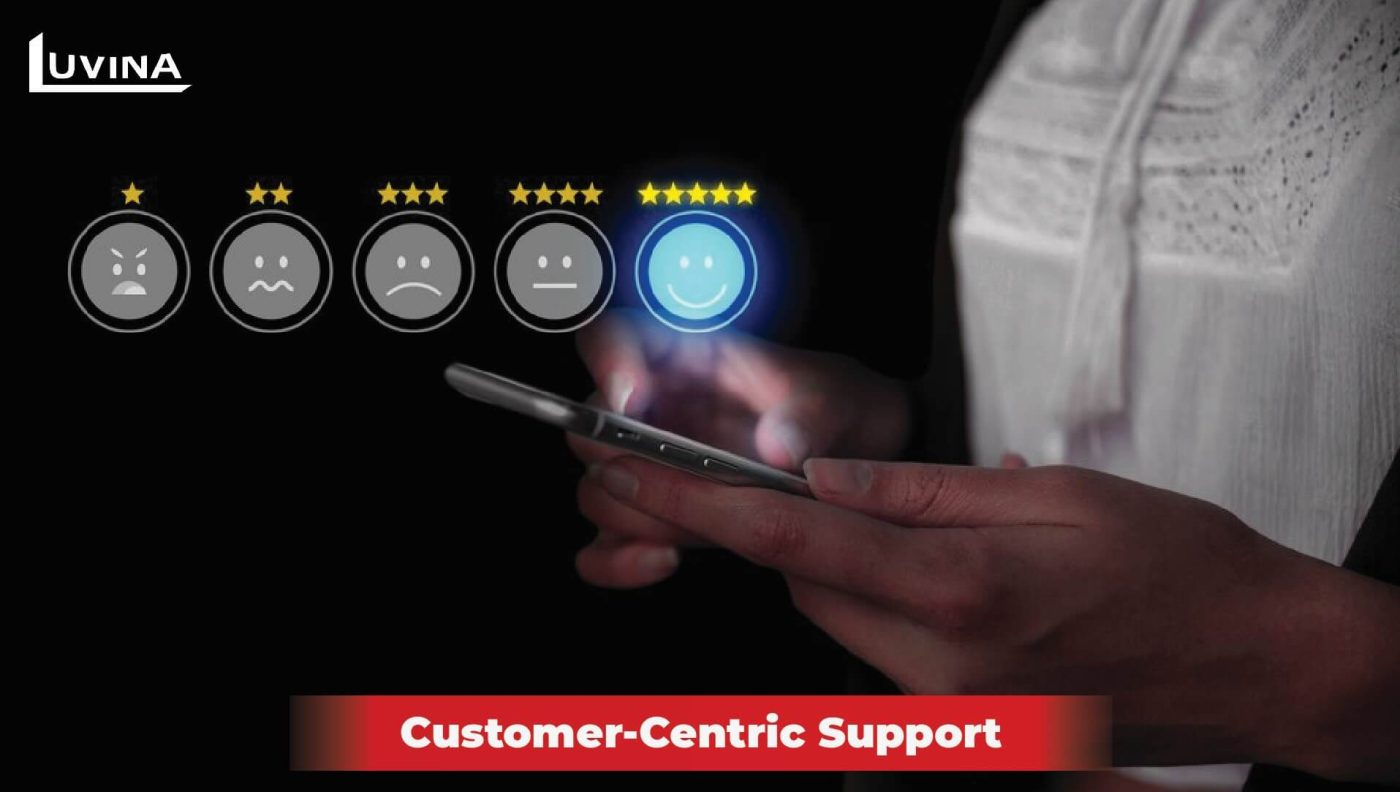In today’s business landscape, the reliance on Information Technology (IT) has surged exponentially, becoming an indispensable backbone for operations across industries. However, this rapid digital transformation has also ushered in a multitude of challenges. From technical glitches to system downtimes, IT issues can significantly disrupt business operations, causing productivity slumps and revenue loss. This is where the role of IT Help Desk services shines through.
At the forefront of mitigating these challenges stands the IT Help Desk, acting as a frontline support system dedicated to swiftly resolving IT-related problems. More than just troubleshooting, these services play a pivotal role in preemptively preventing issues from escalating and impacting the company’s bottom line. In the realm of business efficacy and financial prudence, IT Help Desk services emerge as the unsung heroes, efficiently navigating IT issues to ensure seamless operations.

In the following segments, we’ll delve into five key ways IT Help Desk services become the lynchpin in saving businesses both time and money. From proactive issue resolution to optimizing operational workflows, these services offer invaluable solutions that not only resolve technical hiccups but also prevent them, fortifying businesses against potential revenue losses and ensuring sustained productivity.
Reduced Downtime and Increased Productivity
IT Help Desks act as rapid responders to technical woes, ensuring swift issue resolution to minimize operational downtime. By promptly addressing IT glitches, they keep employees productive and maintain seamless customer experiences. This efficiency translates directly into substantial cost savings by reducing lost work hours and enhancing project deadlines.
For instance, consider a case where an IT Help Desk swiftly resolved a critical server malfunction. The swift response prevented a potential system outage, ensuring continuous access to essential business applications for employees. This proactive intervention eliminated an estimated 30 hours of potential downtime, translating to substantial cost savings in lost productivity, and prevented customer service disruptions. The Help Desk’s timely intervention not only averted a crisis but also bolstered confidence in the company’s ability to maintain uninterrupted operations, positively impacting both productivity and customer satisfaction. Such instances showcase the tangible value of IT Help Desk services in averting costly operational disruptions.
Proactive Maintenance and Prevention
IT Help Desks go beyond mere issue resolution; they proactively implement measures like system monitoring, regular software updates, and robust security protocols. These proactive steps serve as a preventative shield, identifying and resolving potential issues before they escalate into costly problems.

For instance, implementing system monitoring tools allows Help Desks to identify performance irregularities or potential vulnerabilities in real-time. This enables swift corrective action, preventing small glitches from snowballing into major system failures. Additionally, timely software updates and security patches bolster system resilience, minimizing the risk of cyber threats and data breaches.
Statistically, reactive IT maintenance can cost businesses significantly more than proactive approaches. Studies indicate that proactive maintenance practices can save up to 60% in IT costs compared to reactive strategies. By investing in preemptive measures, companies reduce the likelihood of major system failures, costly repairs, or extensive downtime, ultimately safeguarding their bottom line while ensuring consistent operational efficiency.
Improved Employee Efficiency and Focus
A dedicated IT Help Desk acts as a support lifeline, liberating employees from the burden of troubleshooting technical issues. This liberation allows them to concentrate on essential tasks, significantly enhancing their productivity and focus within their roles. Instead of spending valuable time grappling with technical glitches, employees can rely on the Help Desk’s expertise, swiftly resolving issues and returning to their core responsibilities.
Moreover, Help Desks offer self-service portals and comprehensive knowledge bases, empowering employees to troubleshoot common issues independently. These resources provide quick-fix solutions and step-by-step guides for routine problems, reducing downtime and promoting self-reliance among staff members.
Encouraging employees to utilize the Help Desk effectively requires creating awareness and incentivizing its use. Regular training sessions, clear communication about available resources, and recognizing employees who make effective use of the Help Desk can foster a culture where leveraging these resources becomes a natural part of their workflow. An open and encouraging environment that emphasizes the benefits of using the Help Desk encourages its optimal utilization, benefiting both employees and the organization.

Enhanced Customer Satisfaction and Retention
Efficient and responsive IT Help Desk support is the backbone of positive customer experiences. Reduced wait times and high-resolution rates directly influence customer loyalty and an organization’s reputation in the market. Swift resolution of technical issues ensures minimal disruptions in services or product deliveries, fostering trust and satisfaction among customers.
Notably, shorter response times and effective issue resolution contribute significantly to customer retention. Positive experiences elevate a company’s reputation, with satisfied customers more likely to advocate for the brand. Moreover, an efficient Help Desk service not only retains existing customers but also attracts new ones through positive word-of-mouth referrals and testimonials.
Customer feedback or surveys often highlight the pivotal role of IT Help Desk support in their satisfaction journey. Testimonials or survey data showcasing the impact of Help Desk services on customer satisfaction serve as powerful endorsements. They illustrate how quick and effective technical issue resolution directly influences customers’ perception of an organization’s commitment to their needs, solidifying their loyalty to the brand.

Cost-Effective Solution Compared to In-House IT Support
The comparison between an in-house IT team and IT service desk outsourcing to a Help Desk service reveals substantial cost-saving advantages. In-house teams entail significant expenses, including hiring, salaries, training, benefits, and infrastructure costs. Conversely, Help Desk services offer cost-effective solutions by providing access to a pool of specialized expertise, cutting-edge technology, and robust infrastructure, all bundled under a predictable and often customizable pricing structure.
When examining the financial aspects, the total cost of ownership for an in-house IT team versus a Help Desk service showcases stark differences. The overhead costs associated with in-house IT, including salaries, benefits, ongoing training, and hardware/software investments, significantly outweigh the flat-rate or subscription-based pricing models of Help Desk services. Additionally, the scalability and flexibility offered by Help Desks contribute to substantial cost savings. Organizations can tailor their service plans to match their current needs, avoiding unnecessary expenses associated with maintaining an entire in-house team.
Moreover, considering the consistent advancements in technology and the need for specialized skills to manage these innovations, relying on an in-house team may lead to increased costs for training and skill upgrades. Help Desk services, on the other hand, proactively incorporate these technological advancements and skill updates as part of their service, ensuring access to the latest expertise and tools without additional expenses. Overall, the comparative analysis underscores the cost-effectiveness and financial prudence of leveraging Help Desk services over maintaining an in-house IT team.
>> Also Read: Ultimate Guide to Technical Support Services

Conclusion
In a technology-driven business landscape, the role of IT Help Desk services is instrumental in navigating and mitigating technical challenges efficiently. These services serve as a linchpin in preserving operational continuity while safeguarding productivity and revenue streams. Throughout this discussion, five pivotal ways IT Help Desks contribute to time and cost savings have emerged.
Investing in a quality IT Service Desk isn’t just a cost-saving measure; it’s an investment in the long-term success and resilience of a business. The proactive nature of these services not only saves time and money but also ensures that businesses stay ahead of technical challenges, fostering agility and adaptability in a rapidly evolving digital landscape.
For businesses seeking streamlined IT solutions and a strategic partnership that prioritizes efficiency and excellence, explore our range of IT Help Desk services. Reach out today to schedule a consultation and discover how our tailored solutions can elevate your business operations and drive sustained success in the digital realm.








Read More From Us?
Sign up for our newsletter
Read More From Us?
Sign up for our newsletter